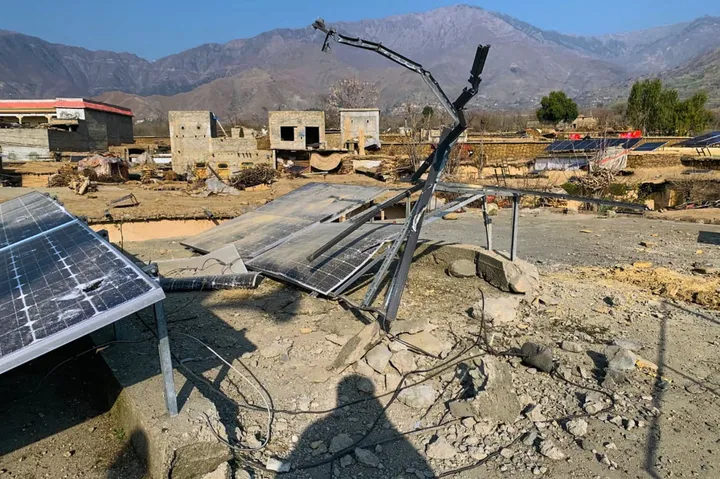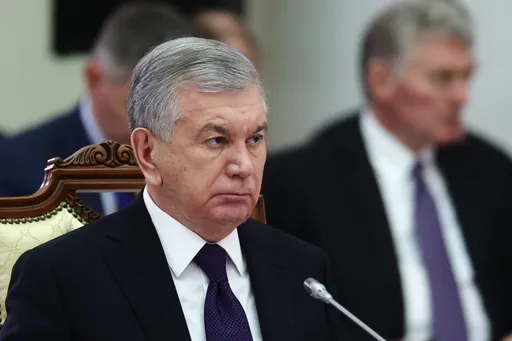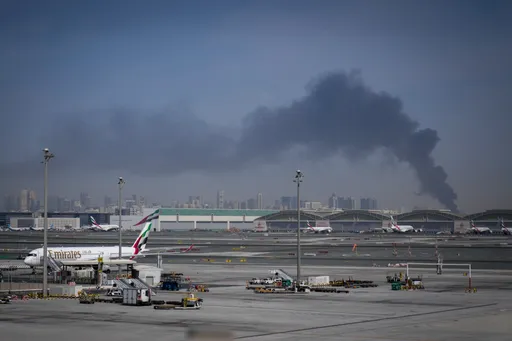After eighteen months of negotiations, the Afghan Taliban and the US government signed an agreement that paves the way for a complete US withdrawal from Afghanistan. Many people, both Afghans and non-Afghans, see the deal as a major step towards peace in the war-torn country.
Obviously, both the Taliban and US President Donald Trump are celebrating the agreement. While the militant group portrays itself as the defeaters of the Western invaders, Trump can now tout the slogan that he has "ended America's longest war" on his re-election campaign.
Last but not least, there one loser too.
The Afghan government of Ashraf Ghani was neither mentioned in the deal nor a party to it. It became an irrelevant player, one that is at the moment busier fighting internal quarrels.
Two weeks ago, and after five months of waiting, the final results of the presidential elections were revealed. While President Ghani was declared victorious, his chief executive and main opponent, Abdullah Abdullah, rejected the results and announced a parallel government. Who benefits from this scenario? The Taliban, of course.
“We don't accept the Kabul government. Besides, there is also no real government. Several people claim to build their own one,” said Sher Mohammad Abbas Stanikzai, who leads the Taliban's political office in Doha, after signing the deal with the Americans.
One of the main pillars of the agreement is intra-Afghan talks between several Afghan factions slated to take place in the near future. Many observers were curious if the Taliban would take the Kabul government – who were excluded from all previous talks – seriously.
However, considering the current political impasse in Kabul, the group can easily argue that there is no one to talk to. Ironically, in the past it was the Afghan government that portrayed the Taliban as a non-unified movement, unable to carry out binding negotiations.
Through the recent agreement, which is indeed historical and could open doors to long-term peace in Afghanistan, the narrative of Afghanistan as the graveyard of empires has been revived, and it's not just the Taliban spreading the word.
People have long believed that there is something special in the Afghan gene that breaks the neck of every empire, from Alexander the Great to the Brits and the Russians, and finally the Americans. At the same time, critiques of this narrative describe the notion as Orientalist, and not based on historical fact.
Now what is true and well-known is that Afghanistan, or the region, has always been a hub for empires. The modern Afghan state itself has been targeted by several empires, especially in the context of the Great Game in the 19th century, the Cold War in the 20th century and the War on Terror in the 21st century.
In the end, it was the British Empire, the Soviet Union and the United States that invaded the country. However, in all three cases, Afghans were not a homogeneous force that resisted the invasion. In every instance, the invader co-opted Afghans to their side, while other Afghans resisted and revolted.
When Mohammad Wazir Akbar Khan led a rebellion against the British invaders, many of his enemies were family members, who adopted a pro-British stance.
Years later, when the Soviets invaded the country, they installed their own regime after toppling the brutal government of Hafizullah Amin, who was part of the Afghan Communists.
During their ten-year occupation, over a million Afghans were killed and millions became refugees. However, Afghan society was split again and was not a unified force that kicked out the Soviets. The mujahideen did not fight only the Red Army, but also Afghans, especially in urban areas. Many Afghans maintained support for the Communist regime and benefited from them.
After it became clear that the USSR had to leave Afghanistan, many observers, especially in the anti-Soviet West, depicted Afghans as heroic victors. For example, the famous mujahideen commander Ahmad Shah Massoud was described as “the Afghan Who Won the Cold War” by the Wall Street Journal, and many other well-known media outlets published similar headlines.
However, the truth is that while an empire indeed “lost” in Afghanistan, the country became an imperial chessboard for at least two superpowers, several regional powers and neighbouring countries. The results? Hundreds of thousands of dead Afghans.
After the US started its 'War on Terror' in Afghanistan, the same thing happened. It was obvious that the outcome would be the same. America fought its longest war in history and lost. But again, the price was high, especially for the Afghan people who were once again divided. It's no secret that most Afghans are not members of the Taliban. For that reason, it is grating to hear some Afghans talk about how “they” defeated the American Empire.
A few months ago, I met a retired mujahideen commander at the Mandai, Kabul's biggest open-air market. It was a coincidence while I was buying dried fruits. We sat down and he told me his whole life story. After some time, he concluded that Afghans were killing themselves for foreign nations, foreign interests and foreign ideologies. Probably, nothing is truer than that.
Afghanistan became a graveyard for many foreign soldiers, but many more Afghans have been buried here over the last decades. Often, brothers or friends are fighting each other on either side of the warring parties. This is the real tragedy and it has to end.
The bloodshed will not end solely with the withdrawal of US troops, but by a real process of reconciliation among Afghans.























